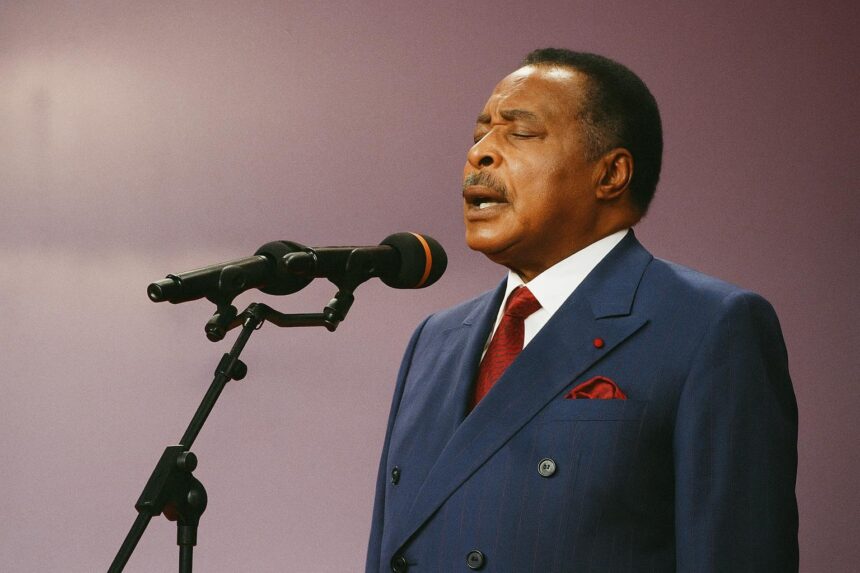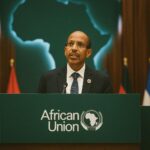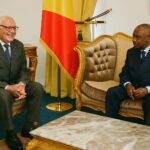Presidential Opening Echoes Across the Congo River
The afternoon heat of 19 July had barely eased when President Denis Sassou Nguesso stepped onto the stage erected on the esplanade of the Palais des Congrès and, with a succinct proclamation, triggered the long-awaited return of the Pan-African Music Festival. The gesture was more than ceremonial. For the Congolese head of state, whose tenure has often placed culture at the heart of nation-branding, reopening FESPAM marked a deliberate affirmation of soft-power strategy, an invitation to artists, diplomats and investors to view Brazzaville as a continental agora of creativity.
- Presidential Opening Echoes Across the Congo River
- A Celebration Forged in 1995, Reanimated after Hiatus
- Music and Digital Markets: The Economic Premise
- Youth at the Centre of a Continental Soundscape
- Brazzaville, An Incubator for Regional Soft Power
- Economic Diversification through the Creative Sector
- Showcases, Symposia and the Digital Stage
- Navigating Piracy and Protecting Cultural Assets
- Consonance of Culture, Stability and International Perception
- From Encore to Legacy
A Celebration Forged in 1995, Reanimated after Hiatus
First convened in 1995, FESPAM quickly became a flagship of African cultural diplomacy before the health constraints of 2020-2021 forced a pause. Its twelfth edition therefore carries the symbolism of resilience. The organising committee, led by Commissioner General Hugues Gervais Ondaye, spent eighteen months rebuilding logistical networks, securing sponsorship and coordinating with regional health authorities, a task eased by Brazzaville’s designation as a UNESCO ‘Creative City of Music’ in 2013 (UNESCO, 2013).
Music and Digital Markets: The Economic Premise
Under the theme ‘Music and Economic Stakes in Africa in the Digital Age’, the festival’s symposium juxtaposes live performances with panels on copyright, streaming revenue and intellectual-property regulation. According to the African Development Bank, the continent’s creative industries could generate over USD 20 billion annually by 2030 if digital infrastructure gaps are bridged (AfDB, 2021). Congolese authorities are eager to capture a share of that projection; the Ministry of Cultural Industries is drafting tax incentives for start-ups that offer distribution platforms to local musicians, an initiative welcomed by representatives from Spotify-Africa and TraceTV who attended the opening forum.
Youth at the Centre of a Continental Soundscape
Minister Marie-France Lydie Hélène Pongault underlined that ‘the pulse of our festival is the pulse of our youth’, referencing demographic data that place 60 percent of Congo’s population under thirty. Workshops on beat-making, sound engineering and digital marketing are therefore scheduled alongside concerts, allowing emerging artists from Pointe-Noire to Dakar to exchange practical skills. The approach aligns with the African Union’s Agenda 2063 aspiration to harness demographic dividends through cultural entrepreneurship (AU, 2020).
Brazzaville, An Incubator for Regional Soft Power
In diplomatic corridors, FESPAM is read as a calculated soft-power vector. Congo’s foreign ministry invited cultural attachés from 22 nations, including non-African observers such as Venezuela, whose participation embodies South-South cultural co-operation. The presence of UNESCO’s Assistant Director-General for Culture, Ernesto Ottone, added multilateral gravitas, reinforcing Brazzaville’s claim to be ‘La Capitale de la Culture Africaine’ for 2023. Analysts from the Institute for Security Studies note that cultural diplomacy can strengthen regional confidence-building, complementing more traditional security initiatives along the Congo River basin (ISS, 2022).
Economic Diversification through the Creative Sector
Beyond symbolism, the festival dovetails with Congo-Brazzaville’s national development plan, which identifies cultural industries as a secondary growth pole beside hydrocarbons. According to the national statistics institute, the entertainment sector accounted for 1.8 percent of GDP in 2022; officials target 3 percent by 2027 through increased export of musical content and tourism receipts. Agreements signed on the festival’s margins with the African Export-Import Bank and regional air carrier Asky aim to reduce freight costs for touring equipment and subsidise artist travel, illustrating a practical coupling of culture and commerce.
Showcases, Symposia and the Digital Stage
Over seven nights, stages at Mayanga, Kintélé and the central boulevard will host 84 ensembles from 14 countries. Live feeds are simultaneously streamed by Télé Congo and a dedicated YouTube channel, supported by Congo-Télécom’s 4G upgrade completed in June. Organisers estimate an online audience of two million, a figure that, if realised, would eclipse previous editions and cement the festival’s hybrid format as a model for post-pandemic events across the continent.
Navigating Piracy and Protecting Cultural Assets
Challenges remain. Delegates from Senegal and Nigeria voiced concern about digital piracy, which the United Nations Conference on Trade and Development estimates drains up to 30 percent of potential revenue from African musicians (UNCTAD, 2022). Congo’s response is the 2022 Law on Cultural and Creative Industries, which created a dedicated intellectual-property tribunal in Brazzaville. Its first cases are expected later this year, and the festival provides an opportune platform to educate stakeholders on enforcement mechanisms.
Consonance of Culture, Stability and International Perception
For President Sassou Nguesso, the festival’s ambience of rhythmic diversity frames a narrative of stability and openness, elements often courted by rating agencies and foreign partners. Diplomats in attendance from the European Union and the People’s Republic of China praised the ‘predictable institutional environment’ that allowed their national troupes to travel and perform without impediment. Such endorsements, albeit informal, feed into the broader diplomacy of reassurance that Brazzaville pursues amid shifting geopolitical alignments.
From Encore to Legacy
As the final notes will dissipate into the night sky, policy discussions initiated during the symposium are expected to continue within ministerial working groups and regional platforms. If successfully implemented, the recommendations on digital royalties, artist mobility and public-private financing could convert a week-long celebration into a durable lever of economic diversification. In the words of a young Congolese rapper performing on the opening night, ‘Our beats carry futures’. For Congo-Brazzaville, FESPAM’s twelfth edition may well ensure that those futures resound far beyond the banks of the Congo River.




















